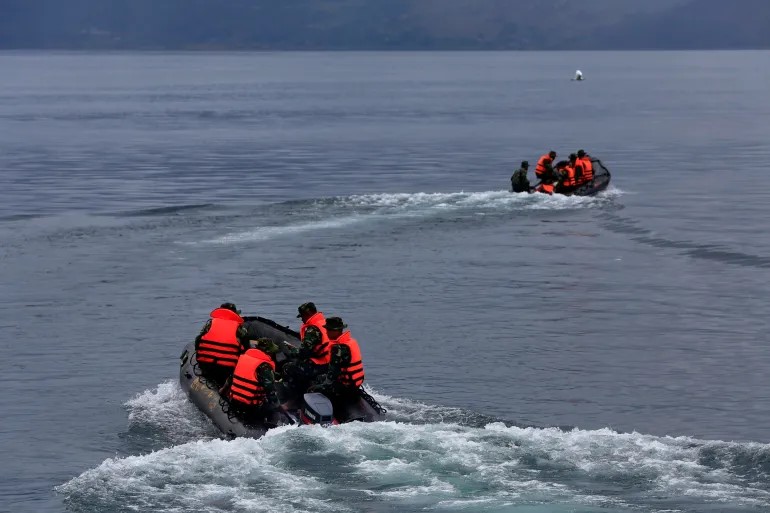
Seven Rescued, Eleven Missing After Boat Capsizes Near Indonesia’s Mentawai Islands

 :
| Updated On: 15-Jul-2025 @ 11:28 am
:
| Updated On: 15-Jul-2025 @ 11:28 amSHARE
Indonesian rescuers are actively searching for 11 individuals who went missing after a boat capsized in rough weather near the Mentawai Islands, located in the West Sumatra province. According to the local search and rescue agency, the boat was carrying 18 passengers, including 10 local government officials. So far, seven individuals have been rescued, and efforts continue to locate the remaining victims.
The boat departed from Sikakap, a small town in the Mentawai Islands, and was en route to another nearby town called Tuapejat. The incident occurred at approximately 11:00 AM local time (04:00 GMT) on Monday as the vessel was navigating through the waters around the Mentawai Islands. By Tuesday, dozens of rescuers and two boats had been deployed to the accident site to aid in the search operation. The head of the Mentawai search and rescue agency, Rudi, stated that the team’s primary focus is to comb through the area surrounding the estimated accident site in hopes of finding all the missing individuals.
Although the exact cause of the capsizing has not been confirmed, Rudi refrained from speculating. However, marine accidents are a frequent occurrence across Indonesia, which is comprised of approximately 17,000 islands. These accidents are often attributed to poor enforcement of safety regulations, overloading of vessels, and harsh weather conditions, particularly during the monsoon seasons.
This recent incident adds to a troubling pattern of maritime disasters in Indonesia. On July 3, just days before the Mentawai tragedy, a ferry carrying 65 passengers sank near Bali, one of Indonesia’s most popular tourist destinations. That disaster resulted in at least 18 fatalities. Similarly, in March, another boat carrying 16 people capsized in rough waters off Bali’s coast, leading to the death of an Australian woman and injuries to at least one other person.
Indonesia’s history of maritime accidents also includes one of the deadliest incidents in recent times. In 2018, more than 150 people lost their lives when a ferry sank in Lake Toba, one of the world’s deepest volcanic lakes, situated on Sumatra island. That tragedy highlighted severe flaws in the nation’s maritime safety protocols and prompted calls for reforms, many of which remain only partially implemented.
The frequent recurrence of such incidents continues to draw criticism from both domestic and international observers, who emphasize the need for Indonesia to enhance its maritime safety regulations. Despite efforts by the government to improve the standards for passenger ferries and implement better safety checks, enforcement remains inconsistent.
In the case of the Mentawai Islands boat accident, authorities have not disclosed whether the vessel was compliant with existing safety standards or how the bad weather conditions were addressed prior to the journey. As search and rescue efforts persist, families of the missing individuals await news, and the nation once again confronts the challenge of ensuring safer travel across its vast archipelago.
The incident serves as another tragic reminder of the inherent dangers of sea travel in the region and the urgent need for comprehensive reform in Indonesia’s maritime transportation safety framework.